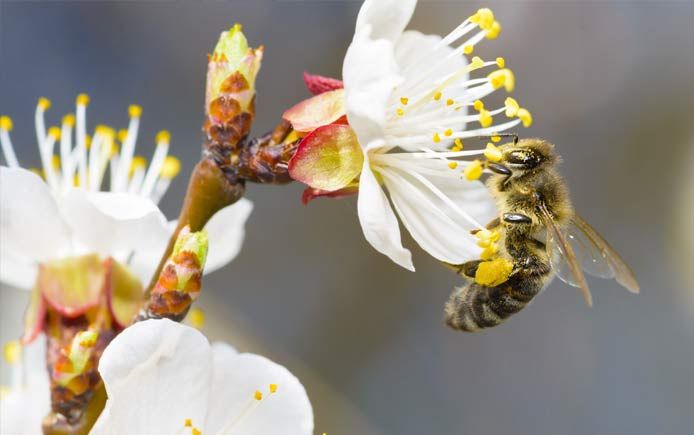
03 Dec A win for bees
The California State Beekeepers Association was buzzing about pesticides at their annual convention in Sacramento last week. And with good reason.
Just days before, EPA took the rare step of banning a bee-toxic insecticide. For an agency that has been really slow to take meaningful bee-protective action, dragging out both scientific analysis and much needed policy shifts, this was a very welcome move.
The agency's decision to pull sulfoxaflor — manufactured by Dow — was largely a response to litigation brought on by beekeepers. And the courts ruled EPA had relied on "flawed and limited data" to approve the pesticide's registration in the first place, citing the “precariousness of bee populations.”
A close cousin to neonicotinoid pesticides, sulfoxaflor is pervasive in treated crops and acts on the same receptors in bee brains. It was also one more in the line of new bee-toxic chemicals that EPA and manufacturers have been hustling toward approval.
Pulling sulfoxaflor off the market will mean the product can no longer be applied to nuts, fruits and vegetables around the country — some of the very crops that rely on bees for pollination. While EPA missed an important opportunity to stop the export of this troublesome pesticide, it's still a clear win for bees and beekeepers in the U.S.
Focus on the pesticide problem
Despite federal officials moving slowly to address the wider spectrum of bee-harming pesticides, beekeepers are keeping the pressure on. Darren Cox, a commercial beekeeper from Utah and president of the American Honey Producers Association, highlighted the priority and urgency of the pesticide problem at the California convention:
"Our beekeeper members have made it clear that pesticides are their number one issue of concern. Despite efforts to blame mites or the practices of beekeepers, the reality is that widespread pesticide use, particularly systemic pesticides, poses a significant threat to our livelihood."
And that may be why remarks from state officials at the same convention didn’t land very well. One representative from the CA Department of Food and Agriculture, in speaking to convention-goers, placed virtually all responsibility on beekeepers; she encouraged them to register all their hives with local and state officials so they would have a record of hive locations. And she told beekeepers to pick up and move bee operations when they encounter a potential threat from nearby pesticide applications — a wholly unrealistic option.
These approaches simply ignore the reality of lingering residues in crops, soil and water — not to mention threats to native bees and other pollinators that can't be moved. More importantly, they let pesticide manufacturers like Bayer off the hook; these corporations should be held accountable for the impact of their pesticide products.
Scientists also spoke up at the conference, cutting through it all. Judy Wu, a researcher with the University of Minnesota Bee Lab, focused her talk on the harmful impacts of neonicotinoids on queen bees. She summed up the situation like this:
“Science has to be narrowly focused, but policy needs to address the bigger picture — an overuse and dependency on pesticides.”
EPA took a good step by halting use of sulfoxaflor, but it shouldn't have been approved in the first place. And there is clearly more work to be done to protect bees, beekeepers and sustain our agricultural economy.

